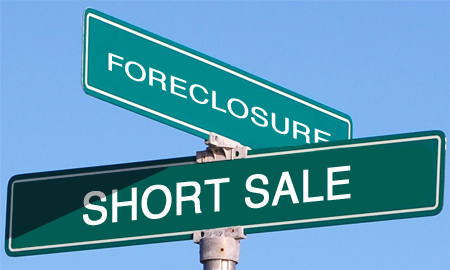Sign Up Today!
-
Latest News
- Blick Law Firm Works Closely with Tampa’s Chiropractic and Acupuncture Clinic
- Blick Law Firm Brings Legal Expertise and Christian Values to Tampa
- What can a personal injury attorney do for you?
- The Importance of a Real Estate Attorney in a New Transaction
- Over 150 New Florida Laws Take Effect this Month
- Law Change Protects Florida Patients From Balance Billing
- Fatal Alligator Attack at Disney World Orlando Could Mean Legal Trouble
- Florida Gun Laws Under Fire After Orlando Attacks
- Prospect of Medical Marijuana in Florida Creates Buzz
- Florida’s Death Penalty System Subject to Further Questioning
- Summer Driving Safety Tips
- Florida Supreme Court Votes to Maintain Reasonableness in Workers’ Compensation Law
Tags
abogado cristiano abogado de lesiones personales abogado en tampa abogados abogados en tampa abogados real estate abogados tampa accident attorney accident attorneys attorney for the defense attorneys in tampa auto accident bancarotta en tampa bankruptcy attorney blick law firm carrollwood carrollwood attorney carrollwood businesses carrollwood law firm carrollwood real estate christian attorney christian law association christian law firm christian lawyer christian lawyers christian lawyers association christian lawyer tampa driving under the influence helping the hurting michael c blickensderfer military lawyer military lawyers minute with mike personal injury personal injury attorney personal injury attorneys personal injury lawyer personal injury lawyers real estate law tampa attorney tampa law firm tampa personal injury attorney tampa real estate attorney veterans veterans lawyer
Tag Archives: short sale process
Short Sale | Real Estate Attorneys | The Short Sale Process
 Trying to avoid foreclosure? A short sale may be your answer. Homeowners facing financial hardship have several options, but a short sale is a very common solution. What is a short sale? A short sale is an agreement between the seller and the lender to sell their property for an amount lower than the balance owed in order to relieve the seller of the mortgage obligation.
Trying to avoid foreclosure? A short sale may be your answer. Homeowners facing financial hardship have several options, but a short sale is a very common solution. What is a short sale? A short sale is an agreement between the seller and the lender to sell their property for an amount lower than the balance owed in order to relieve the seller of the mortgage obligation.
Unlike a foreclosure, a short sale may prevent and help you avoid a huge hit to your credit score that foreclosure may cause. Depending on the negotiated amount of the sale and the timeliness of past mortgage payments, a short sale may be a better alternative.
Did you know? Short sale participants can later purchase a home in a shorter time than those who foreclose on their property. In a short sale you can purchase after two years unlike in foreclosure it is after seven years.
A short sale can be completed by finding a buyer to purchase the home who is willing to pay current market value, and having the mortgage provider agree to the sale. Any shortage after the sale will then either be written off by the lender and an IRS 1099c is issued to the seller, or a deficiency remains which the lender may pursue to collect against the seller.
Changes were recently made to help streamline the short sale process including:
· An expedited short sale approach for borrowers most in need.
· Lenders will now have the power to quickly and easily qualify certain borrowers who are current on their mortgages for short sales.
· HAFA offers home owners and investors accessible solutions to the short sale of your home.
The short sale process can be complicated, and the lender may not be willing to negotiate. It is important to know that a real estate attorney can help negotiate the sale and terms with your mortgage lender and provide you peace of mind that your short sale is being handled by an accountable professional.
If you have legal questions regarding your short sale or you are considering your options, call Blick Law Firm today at (813) 931-0840 to schedule a free 15-minute consultation with attorney Michael Blickensderfer.
Short Sales vs Foreclosure
 Homeowners are often unsure of what options are available when they reach financial hardship and are faced with foreclosure. A short sale can be a helpful tool when trying to alleviate the burden of a looming foreclosure.
Homeowners are often unsure of what options are available when they reach financial hardship and are faced with foreclosure. A short sale can be a helpful tool when trying to alleviate the burden of a looming foreclosure.
A short sale is an agreement by a mortgage lender to sell property for an amount lower than the balance owed in order to relieve the buyer of the mortgage obligation. Depending on the negotiated amount of the sale and the timeliness of past mortgage payments, a short sale may help avoid the huge hit to your credit score that foreclosure causes. Additionally, short sale participants can later purchase a home in a shorter time than those who foreclose on their property.
A short sale can be completed by finding a buyer to purchase the home who is willing to pay current market value, and having the mortgage provider agree to the sale. Any shortage after the sale will then either be written off by the lender and an IRS 1099 is issued to the seller, or a deficiency remains which the lender may pursue to collect against the seller.
The short sale process can be complicated, and the lender may not be willing to negotiate. It is important to know that a real estate attorney can help negotiate the sale and terms with the mortgage lender and provide you peace of mind that your sale is being handled by an accountable professional.
If you have legal questions regarding your short sale or you are considering your options, call Blick Law Firm today at (813) 931-0840 to schedule a free 15-minute consultation with attorney Michael Blickensderfer.
Posted in Blog, Foreclosure Defense, Real Estate
Tagged accident law firm, accident law firms, accident lawyer, bankruptcy law firm, blick law, blick law firm tampa, christian immigration lawyers, christian lawyers, florida law firm, foreclosure vs short sale, how to short sale, immigration lawyer, injury law firms, law firm in tampa, michael c blickensderfer, real estate lawyer, real estate short sale, short sale, short sale process, short sales, short sales vs foreclosure, tampa attorney, tampa law firm, what is a short sale, what is a short sale vs foreclosure, what is short sale
Leave a comment
Foreclosure potential solutions
 Foreclosure is the process in which the lender of mortgage money takes control of the mortgaged property and sells it to raise money to pay on the debt owed by the borrower. A foreclosure happens when one stops paying the mortgage payments, usually for a period of at least three to four months. At that point, the mortgage company has a right to foreclosure, and legally follows a standard process similar to an eviction.
Foreclosure is the process in which the lender of mortgage money takes control of the mortgaged property and sells it to raise money to pay on the debt owed by the borrower. A foreclosure happens when one stops paying the mortgage payments, usually for a period of at least three to four months. At that point, the mortgage company has a right to foreclosure, and legally follows a standard process similar to an eviction.
If your property becomes subject to foreclosure, here are some potential remedies:
Reinstatement – To avoid the completion of the foreclosure process, you may be able to reinstate the loan by making payments on the past due amount. Generally, the lender will be cooperative if you bring your account up to date, or demonstrate that you now have the means to catch up on the past due payments.
Mortgage Modification – The lender may be willing to modify the terms of the mortgage. Modification of the agreement may involve adding payments to the end of the mortgage and simply extend the term of the loan. Modification of the mortgage agreement may also be made by reducing the interest rate of the original Mortgage Agreement, and it could include partial forgiveness of the amount of money you owe.
Forbearance Plan – As a borrower you may be able to file a forbearance plan with your mortgage provider. Under this arrangement, the lender will agree not to pursue the foreclosure action; but, the lender will likely require proof of adequate means to satisfy the repayment on the loan. This is generally a viable option if you have encountered a temporary setback such as poor health or loss of employment.
Deed in Lieu of Foreclosure – You may also deed the home back to the mortgage provider if the lender agrees to accept a Deed in Lieu of Foreclosure. The lender will take back the property and cancel the remaining debt. You will be unable to keep your home, but avoid foreclosure and minimize the detriment to your credit score.
Short Sale – To avoid foreclosure, you may also be able to sell your home for less money than owed. A short sale can be completed by finding a buyer to purchase the home and is willing to pay current market value, and having the mortgage provider agree to the sale. Any shortage after the sale will then either be written off by the lender and a IRS 1099 be issued to the seller, or a deficiency remains which the lender may pursue to collect against the seller.
Foreclosure continues to be a growing problem in Florida, and if it happens to you, the worst thing to do is ignore it.
Call Blick Law Firm today at 813-931-0840. Make an appointment for a free 15 minute consultation with Attorney Michael Blickensderfer to see what your legal rights are in defending a foreclosure action.
Posted in Blog, Foreclosure Defense, Real Estate
Tagged avoid foreclosure, bank owned homes, blick law firm, carrollwood, carrollwood attorney, carrollwood law firm, christian law firm, christian lawyer, christian lawyer tampa, christian lawyers, christian legal, foreclosure, foreclosure auctions, foreclosure help, help with foreclosure, home foreclosures, house for sale, how to prevent foreclosure, michael c blickensderfer, military lawyer, real estate attorney, short sale, short sale process, stop foreclosure, tampa lawyers, what is a short sale
Leave a comment















